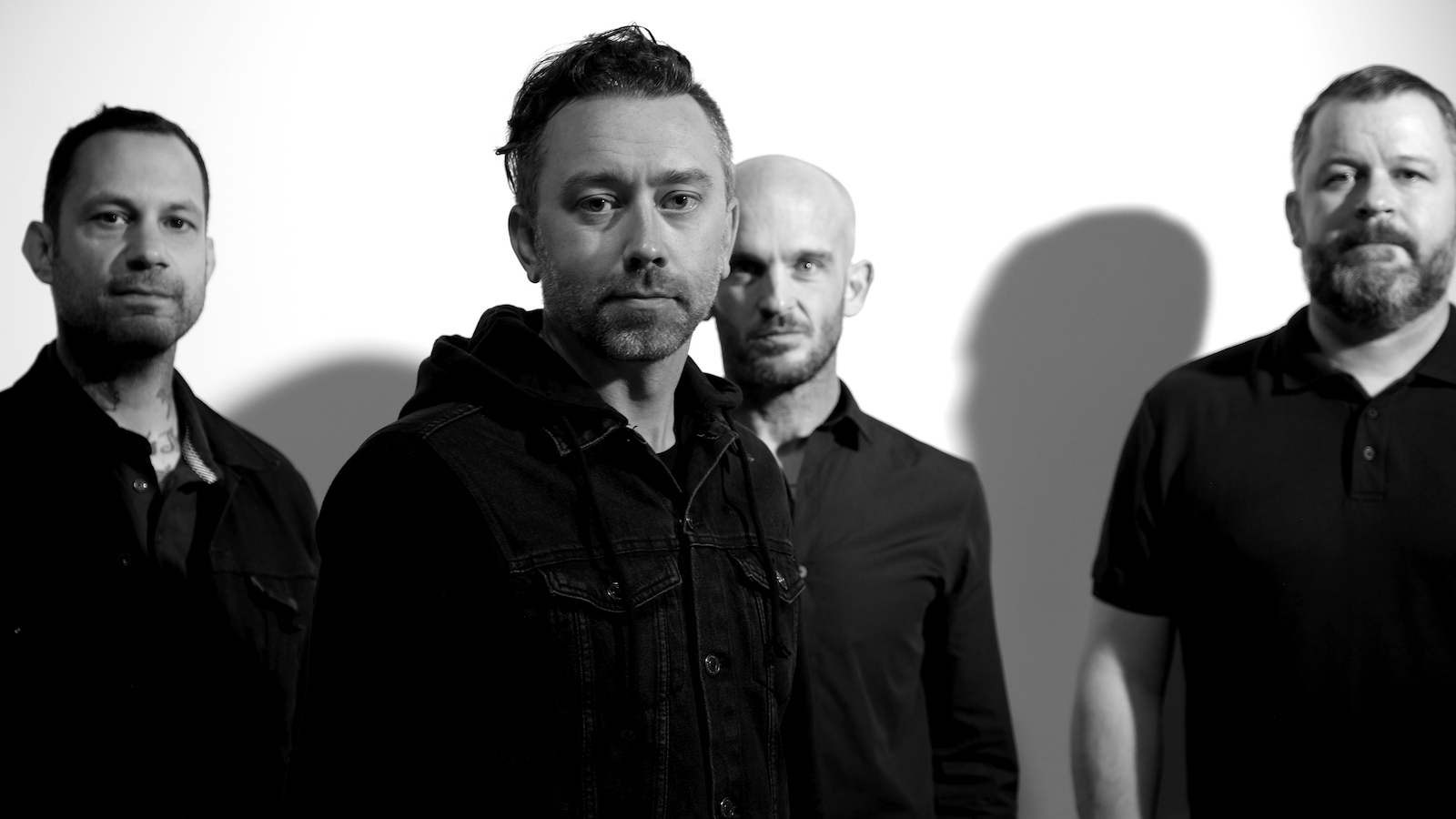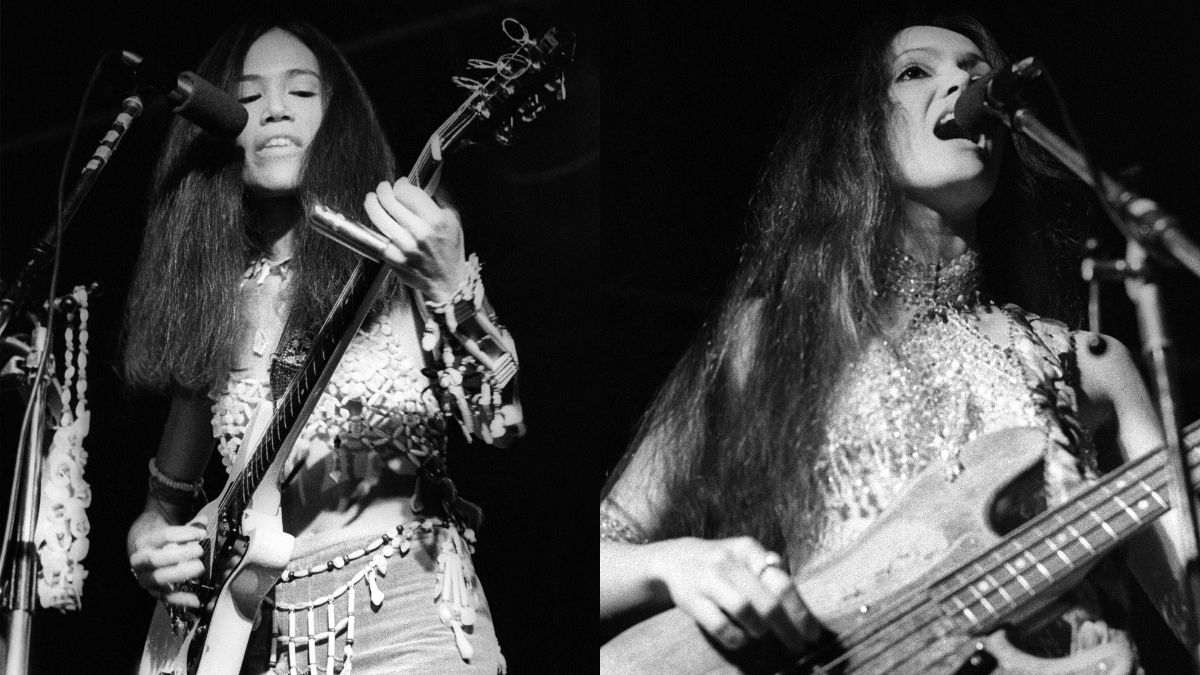Rise Against’s Tim McIlrath: “The world keeps creating an audience for our music”
Nowhere Generation, their ninth album, comes at a particularly touchy time in the Western world’s sociopolitical landscape – particularly for its younger folk

All the latest guitar news, interviews, lessons, reviews, deals and more, direct to your inbox!
You are now subscribed
Your newsletter sign-up was successful
As far as political punk bands go, the overwhelming trend seems to be that you either die an anarchist hero, or live long enough to see yourself become the villain that writes an album of pissweak, money-grabbing love songs. There are exceptions to the rule, of course – like Rise Against, whose ninth effort, Nowhere Generation, just so happens to be one of their most punchy, powerful and poignant to date. And it couldn’t possibly have come at a more imperative time in our history.
Because let’s face it: this is Gen Z’s world now, and we’re all living (and trying to wrap our heads around all the increasingly confusing technology) in it. As the age‑old adage says, “the kids are the future” – and those kids need some fierce and fiery punk-rock to get them in the fascist-bashing spirit! All the old problems are new again: corrupt politicians, rampant queerphobia, state-sanctioned racism, climate change – shit, now we’ve got a global pandemic to wrangle, too!
So… Where does the music fit into that? How can three chords and a yell make any actual, tangible change in the world? That’s one of the questions we posed to Rise Against frontman Tim McIlrath. And as it turns out, the answer is a lot more complicated than “kid hears song, song resonates with kid, kid changes the world”. Because at its core, punk is a form of art, and art is resoundingly multifaceted even in its simplest forms. So let’s take a look at how this piece of it aims to start a revolution.
I wanted to start by pointing to a line from the press release, where you say: “Our hope on this record is to jostle people awake, even it if makes you uncomfortable.” How exactly does that work? How do you channel a battlecry into three-and-a-half minutes?
Therein lies the challenge, right? And you’ve got to make a catchy, too! As a lyricist, I try to paint a picture, tell a story and create an image that will stick with people – catch your attention. And then if I have your attention, maybe I can get this sugar-coated, bitter pill down. And maybe there’ll be some message in there that speaks to you – if not on the first listen, then maybe on the second or third, or something like that. That’s what it was like with literature for me: when I first read 1984, it was just a sci-fi book. I was a 12-year-old kid, I didn’t realise there were any political implications, or that George Orwell was inspired by a lot of different things. I think a Rise Against tune is a very similar thing.
I think it’s telling that Rise Against not only still exist in the present day, but you still have such heavy-hitting themes to touch on and important messages to spread. What’s the force that drives you? Is it your creativity as a songwriter, or is it that the world keeps burning, and there’s still so much work do be done before anything gets fixed?
I always like to say that being in Rise Against is easy, because the world keeps creating an audience for our music. The world keeps creating people that are really frustrated. They have a lot of fears and anxieties about tomorrow, and they’re looking for their music to reflect their questions. And I think that’s important, too, because they’re not looking for people to tell them the answers, or to claim they have the answers – and I’m not going to sit here and tell you that a Rise Against record has any answers to any of the world’s problems. But they’re at least looking for the music – the art they engage in – to be a mirror to what’s going on in their own head. And that’s the beauty of music: you write a song, and then maybe it connects with somebody. And then they feel like they’re less alone.
What’s your philosophy behind using tone as a way to tell a story independent from the lyrics? Do you see the sound as integral as what you’re trying to say with a song?
Yeah, I do. And that goes back to the sugar-coated, bitter pill bit. At face value, we’re just a band – we have instruments, we play guitars and bass and drums; we’re creating three-chord songs and trying to get them on the radio. But then, deep down, we’re people who grew up in the punk and hardcore world, where there’s always been a message and the music has always been a vehicle for that message. And that vehicle is super important.
I think that the reason that I’m still here talking to you, and people are still talking about Rise Against, is because we’ve created this vehicle that has somehow navigated the trends of the last 20 years. And part of that is taking that vehicle seriously, using all of the tools in our belt to make that vehicle something dynamic. That’s where something like an acoustic song comes in: we realised early on with our song “Swing Life Away” that we can do that and still be us. We can turn everything down – or off, even – and create a song that is still authentic to who we are.
All the latest guitar news, interviews, lessons, reviews, deals and more, direct to your inbox!
That’s the freeing thing about music: even the most formulaic band in the world can have a risky move pay off if it comes from a place of authenticity.
It is freeing – especially going in to our ninth album. There’s a lot of freedom going into a ninth album, y’know? Going into our first record, no-one knew what Rise Against was. We didn’t even know what it was! It’s funny: our first album [2001’s The Unraveling] just hit its 20th anniversary, and I found a bunch of old reviews for it. And they were interesting to me for nostalgic reasons, but they were also interesting because it was the last time you could read a review about Rise Against as a new band. It was before we had all the baggage of opinions.
Now people who are in our world, they already have an opinion – good or bad – of who we are. You have something you think about when you think about us. And so going into your ninth album, because everybody already has those opinions, I feel like we have lot of freedom to just be like, “We’re going to do whatever we want.” That’s what makes me interested in a band’s later albums. If you’re listening to a band’s tenth or 11th or 12th album, you’re listening to a group of people who really don’t give a f***.
What guitars were you shredding out on in the studio for this one?
I’m still a Gibson guy, through and through. I’m playing the Martin as an acoustic – for songs like “Forfeit”, I have a D-35. My main guitar is a ‘68 SG reissue. My first guitar was actually an ‘84 SG – I got that in ‘93 as a kid, for like, 400 bucks. I just pulled it out of storage and had it redone, and I’m loving it. It was one of those things where it’s like… It’s been beat to shit. Honestly, I don’t know if it’s worth anything, but it became the most special guitar to me. I’m not a very material person – If something happened to any of my other guitars, I would get over it. But if something happened to that guitar, I feel like it would break my heart.
We still use the EverTune bridge on a couple of our guitars. As a working band, it’s made things a lot easier. Technology doesn’t really do anything to impress me, but when it makes me a more creative person, I’m all for it. Because if have more time to play instead of tuning, when I’m in the studio, I’m trying more things. You want to think you’re going to try stuff regardless, but when you’re on your 12th hour of tracking something, you’re done trying shit. You’re like, “Dude, let’s just get this and go home. I’m over it.” So I think of the EverTune as a really effective creative tool

Ellie Robinson is an Australian writer, editor and dog enthusiast with a keen ear for pop-rock and a keen tongue for actual Pop Rocks. Her bylines include music rag staples like NME, BLUNT, Mixdown and, of course, Australian Guitar (where she also serves as Editor-at-Large), but also less expected fare like TV Soap and Snowboarding Australia. Her go-to guitar is a Fender Player Tele, which, controversially, she only picked up after she'd joined the team at Australian Guitar. Before then, Ellie was a keyboardist – thankfully, the AG crew helped her see the light…
